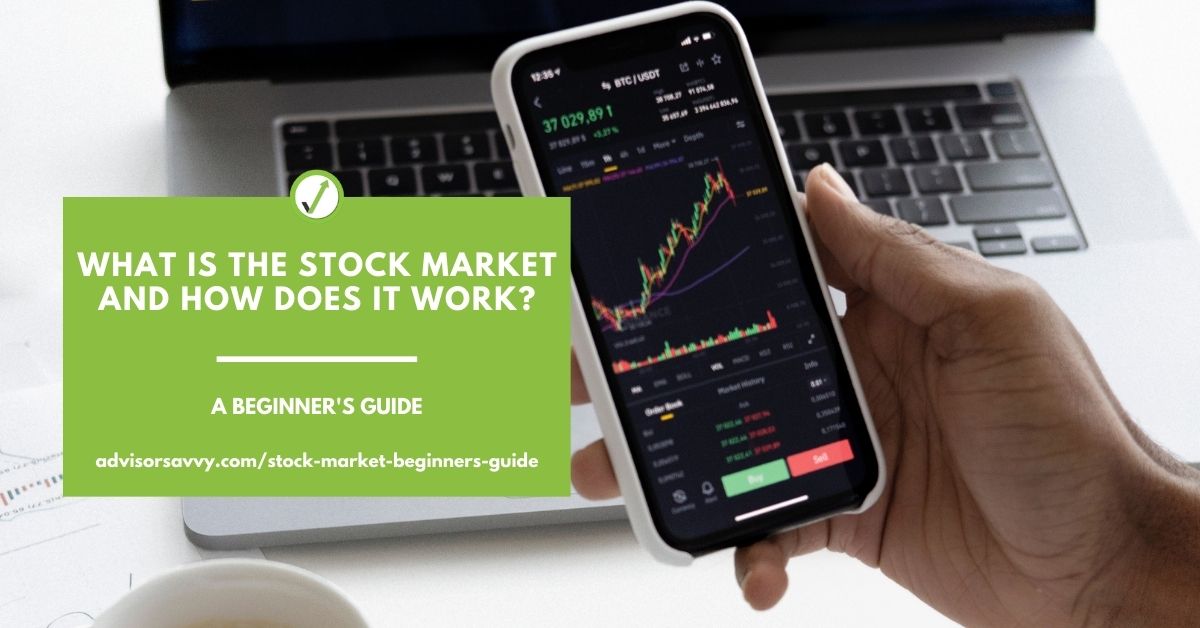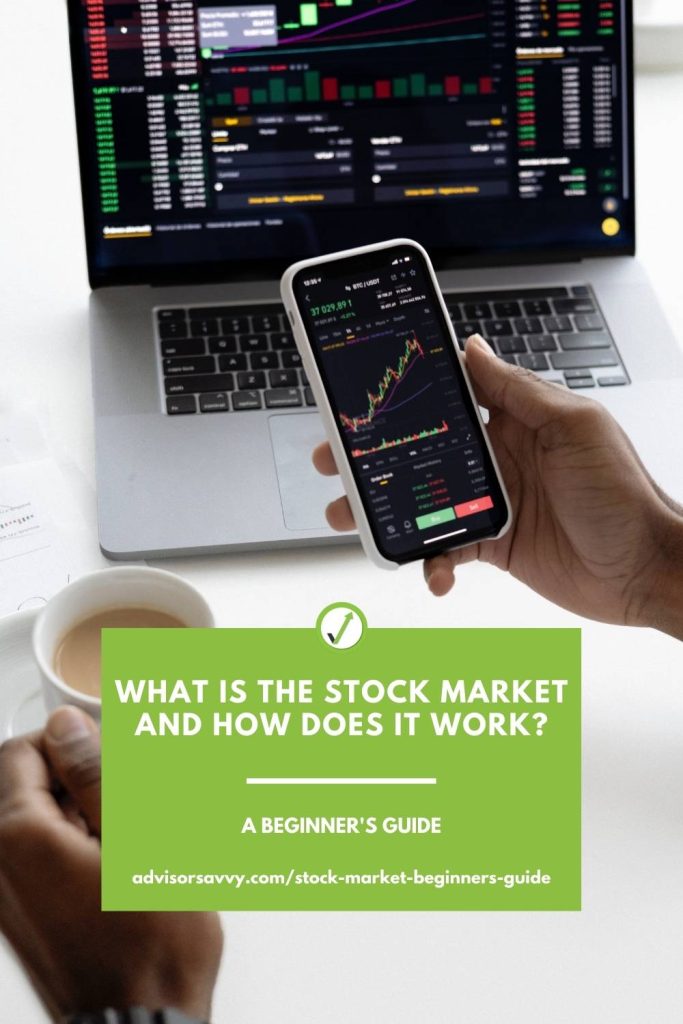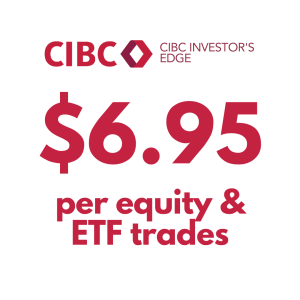
No matter where you are in your investing journey, you’ve likely common across the stock market. Perhaps a friend, coworker, or family member mentioned it to you in passing. If you’re new to the stock market, making your first purchase might be a bit terrifying. We believe it doesn’t have to be, which is why we created this beginner’s guide. Below, we tackle the basics — including the stock market in Canada — and how to open your own account.

Table of contents
What is a stock market?
A stock market is a platform that facilitates the purchase and sale of stocks between interested parties. This could include individuals, institutions, or other companies. In any given market, the transaction regularly takes place between an investor and an investor. In other words, the company is not selling you the stock directly.
CIBC Investor’s Line Offer
Up to $6.95 per online stock or ETF trade. Plus, there’s no minimum account balance.
When was the stock market created?
Many events led to the birth of the first stock market. In the 1300s, Venetian lenders began to sell debt to other lenders and individual investors. Two hundred years later, Belgium’s exchange participated in the purchase and sale of promissory notes and bonds. In the 1600s, various companies in East India issued stock that led to a financial boom. Unfortunately, there was a subsequent crash because little business actually occurred.
By 1773, the first stock exchange was born in London, England known as the London Stock Exchange (LSE). A mere 19 years later, the New York Stock Exchange (NYSE) was created. Technically, however, the NYSE wasn’t the first US stock exchange. That title goes to the Philadelphia Stock Exchange. However, the NYSE quickly became the most powerful in the world.
In Canada, the Toronto Stock Exchange (TSX) was created in 1852.
How many markets are there in Canada?
The following three are all Canada markets:
- Toronto Stock Exchange (TSX)
- TSX Venture Exchange (TSXV)
- Canadian Securities Exchange (CSE), formerly known as the Canadian National Stock Exchange
What time does the stock market open and close?
Stock markets usually open at 9 AM and close at 5 PM in the local time zone. Normally markets are open from Monday to Friday but are closed on Saturday and Sunday. They also close their doors on holidays.
The stock market open time in Canada is similar. For example, the TSX hours are between 8 AM and 5 PM (EST). Other Canada stock market times will be roughly the same. But remember, the Hong Kong market or any other global market will operate on their local times, not ours!
Related Reading: What is Cryptocurrency? A Beginner’s Guide
How does the stock market work?
At first glance, stock markets seem daunting. But you don’t need to be a master economist to understand how they work.
In one sentence, stock markets are a platform for buyers and sellers to exchange ownership in public companies. You can learn more about the inner workings below.
What is a stock?
A stock is an ownership interest in a business that chooses to sell a portion of its company publicly. Shares and equities are other terms used interchangeably with stocks. A company that sells its shares on a stock market is known as a publicly-traded company.
As a stockholder, you own a small portion of the company. When the company profits, so do you. But when the company struggles, you do too.
How is the price of a stock determined?
At a high level, stock prices are determined through the basic economic principles of supply and demand. At any point in time, there is a minimum price someone is willing to sell a share for and a maximum price someone is willing to pay for a certain stock. If demand for a stock is high, investors want to buy stock faster than sellers want to offload stock which raises the price. If demand for a stock is low, investors want to buy stock less than sellers want to offload which drops the price.
Supply and demand outside of a stock market influence the prices too. Political, economic, and other similar factors can impact the market. For example, when the COVID-19 pandemic started, the stock market crashed. Even though COVID-19 is a biological illness that has nothing to do with stocks, the effect of the virus trickled through international markets which ultimately affected stock prices.
What is a stock market crash?
A stock market crash occurs when there is a rapid and unanticipated drop in stock prices. Normally, stock market crashes relate to external events, such as a major catastrophe, an economic crisis, or the collapse of a bubble. Crashes can be worsened by the spontaneous, panic-driven decision of investors to sell their stock. They tend to occur on a cyclical basis, typically every 10 years or less since the 1980s.
Besides the COVID-19 crash, the most recent stock market crash in Canada was caused by the 2008 US Financial Crisis. In this case, the housing market bubble burst in the US, resulting from systematic issues within the banking sector. Another smaller crash occurred in 2021 as a result of the GameStop “saga.”
Is the stock market going to crash?
Stock market crashes are inevitable. It’s less a question of will it crash, and more a question of when. They happen every 5 to 10 years, sometimes more frequently. To answer the question, yes, the stock market will crash again in the future. But no one knows exactly when. Not even the most experienced investors can make accurate predictions.
Even though crashes reduce the value of investments and are emotionally charged, they shouldn’t deter you from investing. Everyone in the stock market is equally impacted by downturns. Plus, stocks tend to perform best in the long run.
Common stock market terms
Like any other industry, the stock market has an array of terminology. Below are some common terms you will hear:
- Annual report: A yearly report produced by a public company that provides information on their financial position. Shareholders and potential investors can access annual reports to aid their decision making.
- Day trading: The process of buying and selling stocks on a daily basis to earn a profit.
- Swing trading: The process of buying and selling stocks periodically to take advantage of cyclical price changes to earn a profit.
- Bear market: A stock market that experiences prolonged price declines.
- Bull market: A stock market that experiences, or is expected to experience, a rise in prices.
- Dividend: A portion of a public company’s earnings paid to shareholders periodically.
- Initial Public Offering (IPO): The first time a private company sells shares of their company on a public stock market. Also referred to as a stock launch.
- Institutional investor. A large organization that makes a substantial investment in a stock market. Usually it is a bank, pension fund, insurance company, or other conglomerate.
- Blue-chip stocks. A public corporation with a well-known reputation of operating effectively in good or bad economic times.
- Broker: An individual or entity who executes purchases and sales of stocks and securities.
- Buy rating. An investment expert’s recommendation to purchase a particular stock.
- Commodities. An economic good that is interchangeable with other goods of the same type. Common examples of commodities include oil, food produce, minerals and so on.
- Canada stock market index. This is the S&P/TSX Composite Index. It is a benchmark equity index that tracks about 250 of Canada’s largest public businesses.
Related Reading: Best Canadian Dividend Stocks
How to invest in the stock market in Canada
There are a number of ways to begin buying and selling shares. Continue reading below for more information on how to get into the stock market.
CIBC Investor’s Line Offer
Up to $6.95 per online stock or ETF trade. Plus, there’s no minimum account balance.
How to open a stock market account in Canada
There are many entities that allow you to access the Canadian stock market. The first step is to choose a platform that best suits you and your needs. This could be a traditional bank, like Scotiabank or TD, or an independent platform, like Wealthsimple or Questrade. Each has its own benefits and drawbacks, it’s up to you to decide what is best for you. Many choose to open an account with their existing bank for simplicity, but it depends. Some place more emphasis on fees and commissions, resources available, customer service, market access, assets that can be traded, etc.
Once you choose a trading platform, apply for an account. It could be as simple as filling out an online application or you might have to go meet an account manager at a branch. You will likely need to provide some personal details, such as your name, Social Insurance Number (SIN), and address.
Once your account is open, you can add funds by connecting a bank account. Usually, funds can take 1-5 business days to appear in your trading account. When the funds arrive, you can begin buying and selling stock on the Canadian stock market.
Canadians are fortunate to have access to tax-sheltered accounts, such as the Tax-Free Savings Account (TFSAs) and Registered Retirement Savings Plan (RRSPs). To avoid taxes on capital gains and investment income, you can optimize tax-shelter accounts. If this is how you’d like to start your stock investing journey, be sure to choose a platform that allows the use of a Canadian tax-sheltered account.
What is the best company to invest in the stock market in Canada?
What is considered a good investment depends on the investor’s financial goals and risk tolerance. However, it’s good practice to own stocks in a variety of companies and industries. This is known as diversification. In simple terms, diversification is the process of not putting all your eggs — in this case, money — into one basket.
Industries that tend to do well in the long run in Canada include energy/utilities, banking and mining. However, there are a ton of other companies you can invest in that will be profitable. As you hone your skills as an investor, you’ll get better at identifying lucrative investment opportunities.
Is day trading worth it?
Day trading is a rewarding career for many people. That said, you run the risk of losing a lot of money when you begin your day trading journey. In addition, day trading is a full-time job which means you’re essentially a business owner. I
If you’re good with numbers and passionate about economics and finance, however, day trading could be an opportune career for you. On the other hand, if you’re not great with numbers or complex financial concepts, you can still make money on the stock market by investing long term.
How to make money in the stock market
Naturally, how to make money in the stock market is the golden question. People aren’t investing for nothing — the goal is to turn a profit. In reality, there are various ways to make money through stock investment. On a broad scale, there are two main types of stock market trading: short run and long run. Day and swing traders are typically aiming to make money in the short run. Whereas passive investors are aiming to make money in the long run. Short-term trading is riskier, but has a higher reward. Whereas long-term trading is less risky, but has lower rewards.
At the end of the day, there isn’t a get-rich-quick scheme everyone can use in the stock market. If you want to earn a profit, you’ll have to put in the time and work like everyone else.
Stock market for beginners in Canada
You might be wondering how to play the stock market in Canada to get rich. Like any new skill, it takes time to gain an understanding of the stock market and it’s inner workings. If your desire is to get rich quickly, think again. As a beginner, you need to account for the time it takes to form your craft as an investor. You will make mistakes that cost money, but the end goal is to become an expert. Fortunately, there are plenty of free resources online that will help you on your journey – for example, AdvisorySavvy! (And, if we may suggest, our picks for best investing books for Canadians.)
Here are some quick tips for entry-level stock market investing in Canada:
- Diversify the types of stock you own
- Don’t put all your money into the stock market right away; spread your money across other investments like GICs, bonds, savings accounts, and so on
- Read stock market data, investing tactics, stock market news, stock market trends, and other informational content to develop your skill. Just make sure it’s from a reputable source — and especially one that doesn’t try hard to sell you something.
- Invest in what you know!
Pros and cons of investing in the stock market
| Pros | Cons |
| Earn investment income | Risk losing money in the short term |
| Own a small portion of a company without being a business owner | Requires the investor to educate themselves on finance and economic concepts |
| Protect assets from inflation and other economic factors | Must pay tax on capital gains and investment income outside of tax-sheltered accounts |
| Easy to buy and sell | Competing with highly informed and educated investors |
| Stocks are a liquid asset |
Takeaways
The Canadian stock market today is a great engine to earn investment or business income. However, there is a learning curve for beginners. You won’t earn a ton of money on the stock market until you get up to speed. When embarking on your investing journey, take one step at a time and learn from your mistakes. A few years from now you will be a total expert!
Your financial situation is unique, and we can help you find the best advisor for your needs. Just fill out our short questionnaire.

